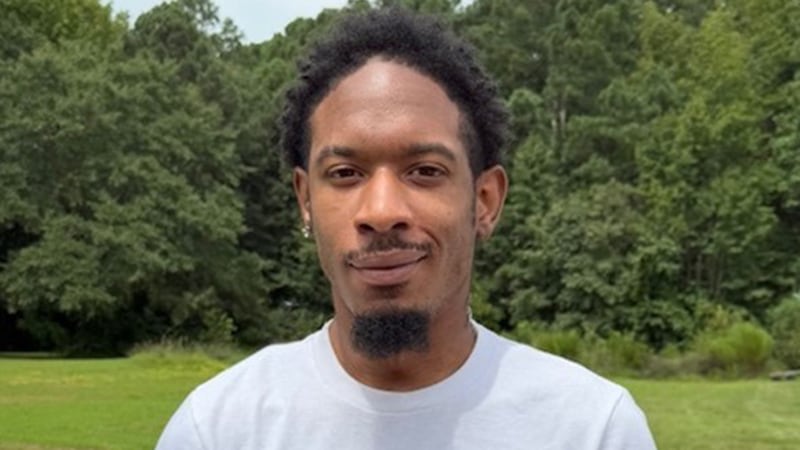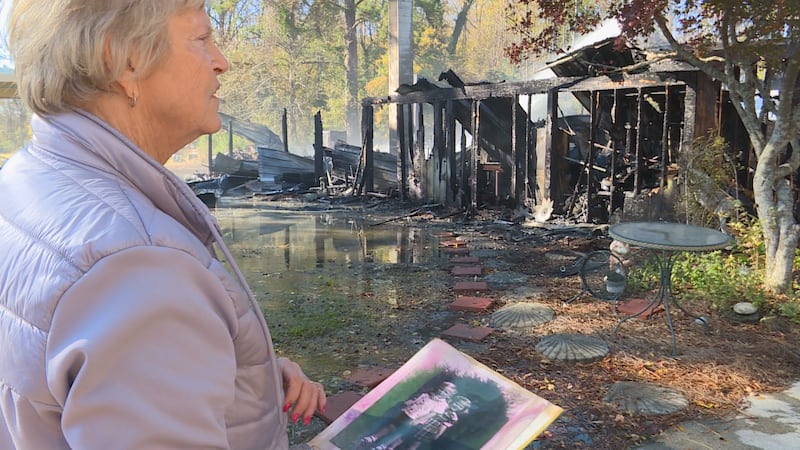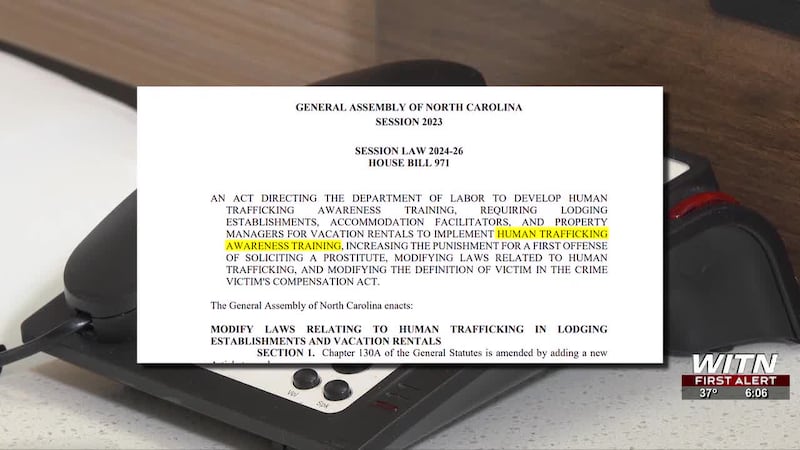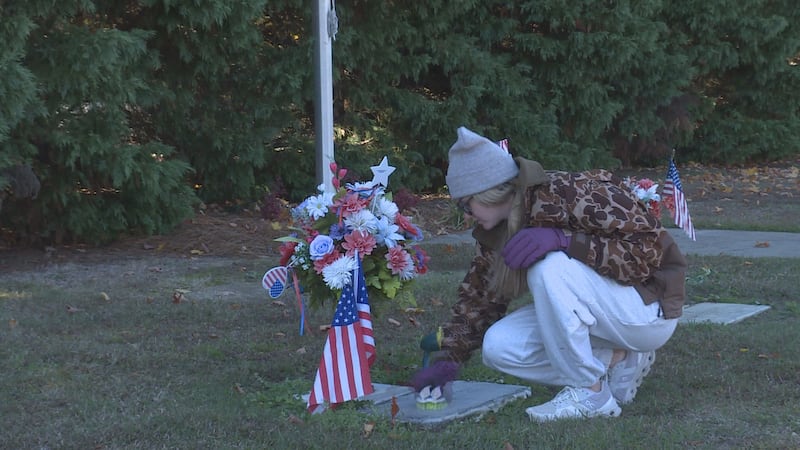Human trafficking survivor talks impact of law requiring training for hospitality industry
GOLDSBORO, N.C. (WITN) - A new state law is hoping to tackle human trafficking by requiring training for employees at vacation rentals.
Our WITN First Alert Investigates team looked into how the training works and found out more from a woman who escaped human trafficking as she weighs in on the legislation.
“It happens to you before you even realize that it’s happening,” said survivor Jackie Garrett.
A lot has changed for Garrett since she escaped human trafficking.
“I was doing whatever I could to put a roof over my head and feed my addiction,” she explained.
Today, she looks happier, healthier - and there’s a reason for that. She’s found freedom.
“There definitely is help out there,” Garrett said. “Even when it feels like you’re at your lowest, there are people who care.”
That motivation to help is taking shape in the form of a new state law. Effective July 1st, employees at vacation rentals in North Carolina must undergo training on how to spot signs of human trafficking.
“It is going to empower the hospitality industry, hotel owners, Airbnb owners, and property managers to actually have signs to look for those who are being prostituted or those who are being trafficked,” said Beverly Weeks, the CEO of Cry Freedom Missions.
The nonprofit supports human trafficking victims through everything, from their downtown Goldsboro storefront to their prison and hotel outreach. It’s an effort Garrett has to thank for her transformation.
“The seeds that are planted in the hotel outreach definitely do help because that’s the first place I ran to when I did get help,” Weeks said.
House Bill 971’s focus on hotels is because of how often they’re used by traffickers.
“I am aware of hotels here in eastern North Carolina that would book their rooms out even on 15-minute increments,” Weeks said. “In many incidents, the hotel owner was aware that drug addiction, prostitution, and even possible human trafficking were taking place in their hotel areas.”
The legislation offers resources for people in the hospitality industry so they can be the eyes and ears for law enforcement.
“This law that’s enforced by the Department of Labor requires that people working in the hospitality industry be trained in the signs of trafficking so that if they see something, they can respond to it,” said NC Labor Commissioner Luke Farley. “The law also requires these facilities to have a plan in place for reporting trafficking to local law enforcement.”
Those who have taken the training say it talks a lot about keeping an eye out for anything out of the ordinary. That could be something as simple as an adult with a minor who’s avoiding eye contact. It may not seem like a lot, but it’s still worth reporting.
“Some of it just looks strange to us because sometimes they look beat-up, and I’ll tell the manager, you need to check into that,” said Teresa Washington, the head of housekeeping at a Greenville hotel.
She says the training talks about simple ways to keep an eye on guests.
“The stayovers, when they have the do not disturb sign on their door, our job is every three days to go and knock on their door.”
“I think it’s just being aware of your surroundings and paying attention to the things that don’t feel right. If she’s never alone, if she can never answer any questions,” said Kristy Birchum, a case manager with Cry Freedom.
Weeks hopes this opens the door for other industries to follow suit.
“What if this could make such a positive impact - this new legislation - that many were required to look at these trainings? Massage parlor owners, hairdressers, nail technicians.”
Opening the door to more success stories like Garrett’s.
“I look back and think there were some things I should have done differently or some things I wish hadn’t happened to me, but it wouldn’t have made me the person I am today,” she said.
If entities don’t complete required training, they’ll face fines up to $2,000.
Last year, 301 cases of human trafficking were identified in North Carolina alone, according to the National Human Trafficking Hotline. Cases can involve multiple victims.
Copyright 2025 WITN. All rights reserved.














